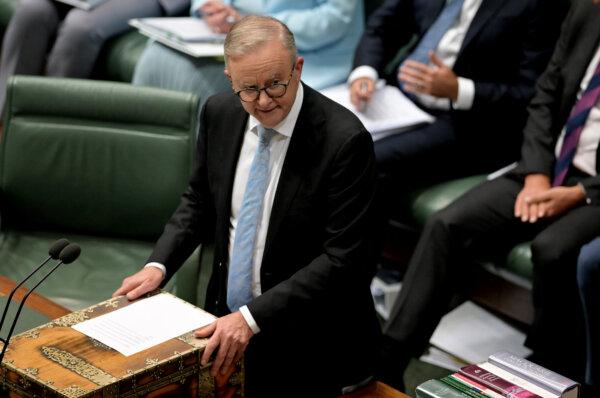Greens urge elimination of indexation as student debts projected to rise by 4.8 percent
An expert expressed that the Greens’ proposal was unjust towards the majority of Australians who did not pursue higher education and whose taxes fund these degrees.
The Australian Greens Party has reiterated its stance on eliminating indexation on student debts after a recent analysis. However, an expert emphasized that indexation is crucial to protect Australian taxpayers from losses associated with the student loan program.
Based on projections from the parliamentary library released by the Greens on April 18, the amount of HECS (Higher Education Contribution Scheme) debt owed by approximately 3 million students nationwide is expected to increase by 4.2 to 4.8 percent on June 1 due to indexation.
The party indicated that this projected increase would be the second-highest in the past decade, following a 7.1 percent surge in June 2023.
Additionally, the Greens estimated that total student debts would rise by 16 percent, totaling $12.3 billion (US$7.92 billion).
Greens Deputy Leader and education spokesperson Mehreen Faruqi voiced concerns about the escalating student debts and urged the federal Labor government to eliminate indexation.
“In a worst-case scenario, student debt could surge by almost 5 percent in June, leading to a nearly 17 percent increase in debt during Labor’s initial term in government.”
“This concerning trend highlights a significant flaw in the current system and necessitates prompt action from the Labor government.”
Mehreen Faruqi reiterated the Greens’ message that university and TAFE education should be accessible to all Australian students, without financial barriers.
“Financial constraints should never hinder access to education,” she stated.
Response from the Prime Minister
Meanwhile, Prime Minister Anthony Albanese defended the HECS program, citing a substantial rise in the number of Australians obtaining a university degree.
However, he acknowledged areas where the government could enhance its approach to address the issue of escalating student debts.
“We are reviewing the recommendations and will soon announce our decisions on that.”
The prime minister also hinted at potential relief measures in the upcoming budget.
“We are approaching the budget cycle. Additionally, we have introduced fee-free TAFE, benefiting over 300,000 individuals last year. This has significantly impacted the vocational education and training sector,” he stated.
“We aim to encourage more people to pursue university education and TAFE qualifications, which are vital for future job opportunities.”

Education Expert Criticizes Abolishing Indexation Proposal
Glenn Fahey, the director of the education program at the Centre for Independent Studies, rejected the Greens’ call to abolish indexation, deeming it a detrimental policy resembling those advocated by the far left in the United States.
“It is an impractical proposal that goes against the national interest. Unfortunately, it reflects the infiltration of modern progressive populism into Australia’s education policies,” he shared with The Epoch Times.
He emphasized the importance of indexing student debts to protect Australian taxpayers from losses tied to the HECS program.
“Offering additional relief to recent graduates at the expense of older graduates or the many Australian taxpayers who did not pursue higher education would be unfair,” he pointed out.
“For years, student repayment rates have been exceedingly low due to prolonged periods of low inflation.”
Mr. Fahey also noted that Australian university graduates generally fare well under the current HECS system and in a robust job market.
“The primary concern for graduates with HECS debts is likely the overall cost of living, which policymakers should directly address, such as tackling rising energy and housing expenses,” he suggested.
To tackle the issue of student debt burden, Mr. Fahey recommended implementing a “marginal repayment rate system” where graduates make payments proportional to their income above the HECS repayment threshold rather than a fixed repayment based on their total earnings under the current system.
The director also supported lowering the HECS repayment threshold ($51,550 in 2023-2024) to ensure that more graduates can make repayments annually and avoid situations where individuals opt for lower-paying jobs to evade debt repayment.
“This approach benefits taxpayers, the higher education system, and graduates by preventing debts from ballooning over time for graduates taking longer to surpass the HECS threshold,” he concluded.






